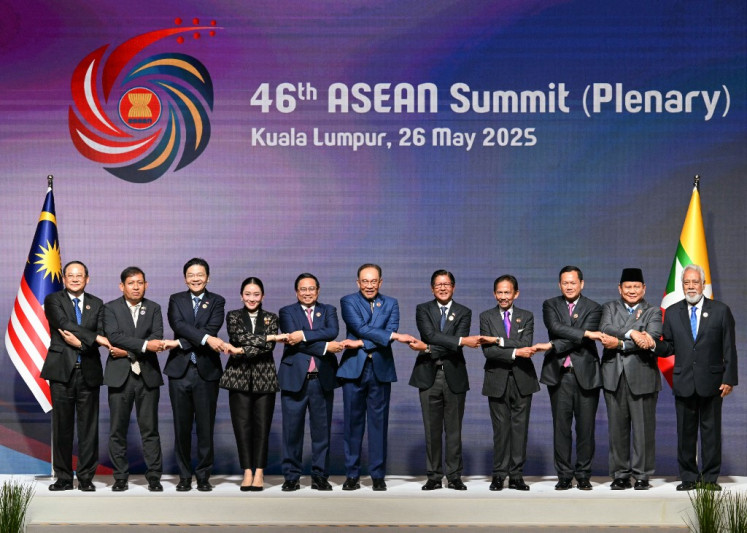EDITORIAL: E-commerce milestone
Only the United Kingdom, India and the United States have more start-up companies than Indonesia. Despite the rapid growth of e-commerce, the government is acting more as a regulator than facilitator.
Change text size
Gift Premium Articles
to Anyone
 E-commerce is mushrooming as the world, including Indonesia, is going digital. (Shutterstock/File)
E-commerce is mushrooming as the world, including Indonesia, is going digital. (Shutterstock/File)
O
wing to their speedy growth, Indonesian start-ups have unsurprisingly grabbed the attention of both foreign and local investors. The latest positive development came last week when widely diversified Indonesian conglomerate, Astra International, announced an investment of Rp 2 trillion (US$150 million) in local start-up Go-Jek, one of the country’s four unicorns.
Astra’s move extends the list of giant companies investing in Go-Jek, which include tech titan Google, Singapore’s Temasek and China’s Meituan-Dianping. Next in line will be Djarum Group subsidiary PT Global Digital Niaga (GDN), the owner of major e-commerce platform Blibli. com, although it has yet to reveal the amount of its investment and when the corporate action will take place.
Indonesia’s e-commerce business has been steadily robust in the last few years. According to start-up data provider Startup Ranking, there are now more than 1,700 start-up companies operating a wide range of businesses, such as ride-hailing services, retail and payment gateways here. Only the United Kingdom, India and the United States have more start-up companies than Indonesia.
Not only is Indonesia home to the world’s fourth-largest number of start-up firms, it also has given birth to four unicorns or e-commerce companies with a valuation of at least $1 billion, namely Go-Jek, Tokopedia, Bukalapak and Traveloka.
The country’s e-commerce market has continued to grow, but it is foreign investors, rather than local ones, that have seized the opportunities the start-up companies have offered. As in the case of the four Indonesian unicorns, investors from the US, China, Hong Kong and Singapore are behind them.
Therefore, Astra’s and Djarum’s investment in Go-Jek marked a breakthrough in the country’s e-commerce business. Regardless of the value of their investment, their stride into digital commerce is considered an important headway that could generate a bandwagon effect.
E-commerce is mushrooming as the world, including Indonesia, is going digital. More tech start-ups will emerge and grow unhindered. They have disrupted — and many believe sooner or later they will take over — the conventional market. In certain industries such as the media, digitalization devours traditional players.
The government’s support for e-commerce is heartening, but it has not done enough. Despite the rapid growth of e-commerce, the government is acting more as a regulator than facilitator. Such a change in mindset is imperative so as to provide a more favorable ecosystem for start-ups to flourish.
To say the least, the government’s commitment to developing the country as a regional power in the digital economy remains halfhearted, as evident in the ongoing controversy surrounding a transportation ministerial decree on ride-hailing apps.
There are many regulations that need revision, as they could potentially hamper the digital economy. Regulations matter, simply to make sure customers are well protected.








